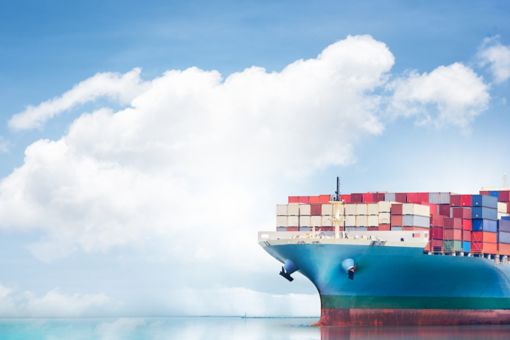Malta Tonnage Tax Rules
Malta Tonnage Tax Rules
European Commission Approves Malta Tonnage Tax Rules
European Commission Approves Malta Tonnage Tax Rules
European Commission Approves Malta Tonnage Tax Rules
The Maritime Sector represents one of the main pillars of the Maltese economy and following the membership to the European Union, Malta managed to establish itself as one of the leading maritime hubs in the Mediterranean Region.
Malta has developed a strong shipping specific legal and regulatory platform that enabled the Maltese Shipping Flag to become an established reputable International Ship Register which is now one of the largest in the world.
The Eight Cross Flag is one of the most recognizable in our seas and oceans ranking 1st in Europe and 6th worldwide in terms of registered tonnage.
Over the last decade efforts of Maltese Authorities have shifted towards the creation of a framework aimed at enhancing the Super-Yacht Industry and ultimately to replicate the positive results obtained within the Shipping Merchant Fleet. This was done by taking full advantage of Malta’s high reputation as an International Centre of Excellence and its wide range of international shipping services and facilities.
Among the various aspects which made the Malta Flag the choice of many ship-owners, the most attractive one is represented by the Malta Tonnage Tax Rules.
For as most of you are aware, in line with its investigations carried out in all European tonnage tax systems, in 2012 the European Commission opened a formal investigation on the Maltese Tonnage Tax Rules to assess their compliance with European State Aid Rules. The duration of the investigation, also due to its complexity, lasted for a period of six years and was concluded last December subject to the publication of the Commission’s recommendations. Such recommendation were recently disclosed to the public.
On the plus side, notwithstanding such long period of uncertainty the Maltese Flag experienced a constant and regular growth in terms of tonnage and number of yachts (commercial and not) registered in its books, thus making it the 1st Flag in Europe and 6th worldwide. We believe that the recent decision of the European Commission (EC) will consolidate and strengthen even further the role of the Maltese Flag.
The EU Commission decision in a nuthell
By and large Malta’s tonnage tax system was found to be in line with the Maritime Guidelines issued by the Commission itself in 2004 in that income derived from vessels engaged in maritime transport (which comprise the overwhelming majority of the Malta flagged vessels falling under the scheme) such as general cargo, car carriers, bulk carriers, container and passenger vessels were, are and remain exempt from Maltese income tax. This exemption is subject to compliance with certain administrative conditions, for example the payment of the relevant fees to Transport Malta and maintenance of separate accounts to ring fence activities exempt under the tonnage tax from those which are not.
The attached newsletter will go through the conclusions reached by the European Commission in its decision dated 19 December, 2017 on the compliance of Malta’ s Tonnage Tax regime with EU’s State Aid Rules and the commitments made by Malta in this respect.
Download a summary of the EU Commission decision.
The revised Tonnage Tax Rules in a nutshell
On 17 December, 2017 the European Commission conditionally approved the Maltese Tonnage Tax Rules for a period of ten years. Following such decision the Maltese government introduced legal instruments amending its Tonnage Tax Rules. This was done through the enactment of legal notices 127 and 128 of 2018.
The compatibility of the Maltese Tonnage Tax rules with EU State Aid rules and with the Commission’s 2004 Guidelines on State Aid to Maritime Transport will further strengthen the reliability and confidence of ship-owners and ship managers towards the Maltese flag and its supporting legislative framework.
Such rules bring clarity with respect to those activities eligible under the tonnage tax exemption, now distinguishing shipping activities from ancillary services. Moreover, further clarity is brought with respect to ship management activities through the possibility for these to operate non-EU flagged vessels from the EU. The activity of dredgers and tonnage boats together with a definition of intra group bareboat out activities was an additional novelty.
Download our Malta Tonnage Tax Rules factsheet.
Connect with us
- Find office locations kpmg.findOfficeLocations
- kpmg.emailUs
- Social media @ KPMG kpmg.socialMedia


